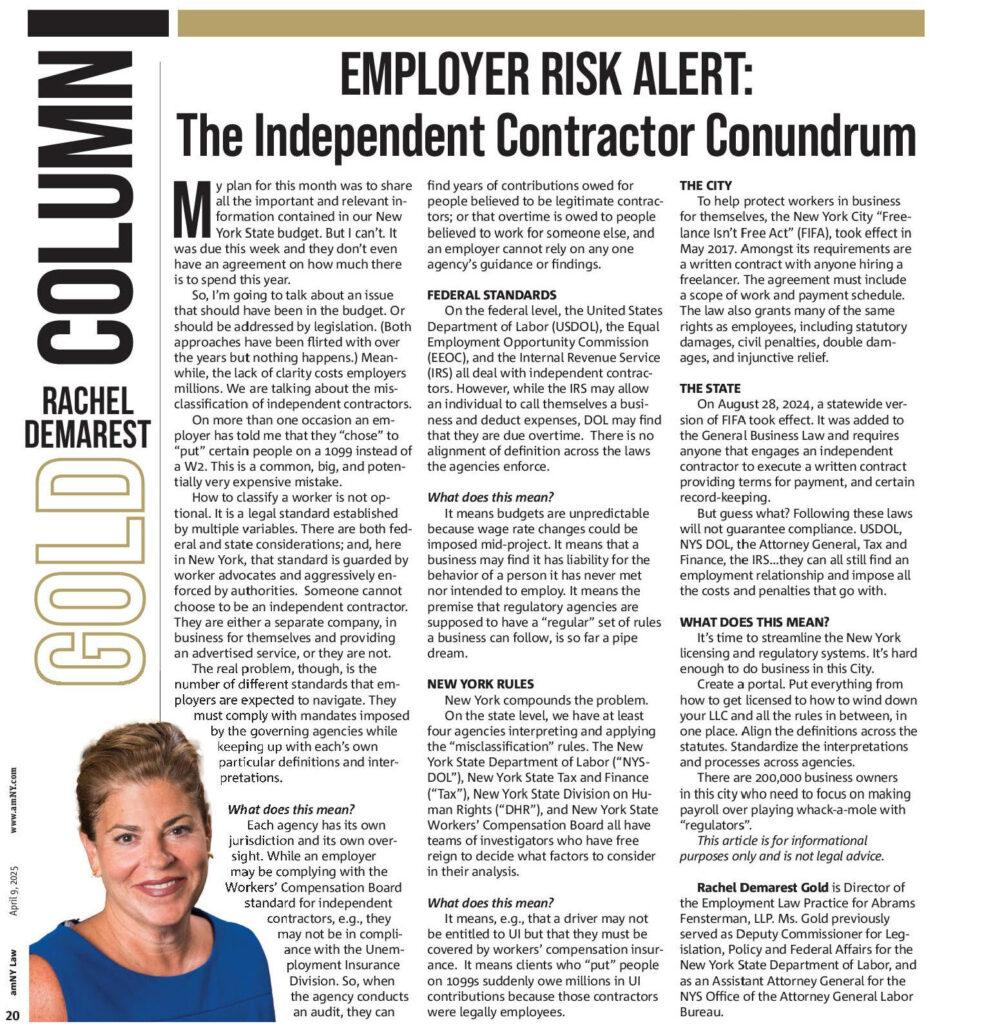Over the past few months, there have been a number of developments of interest within the healthcare industry. We would like to take the opportunity to make you aware of these developments and their potential impact on your professional practice.
NON-HIPAA COMPLIANT MEDICARE CLAIMS TO BE REJECTED BY CMS
Beginning on October 1st, electronic claims for services provided under fee-for-service Medicare that are not compliant with the Health Insurance Portability and Accountability Act (“HIPAA”) will not be processed by the Centers for Medicare and Medicaid Services (“CMS”) and will be returned for modification. Prior to this date, non-HIPAA complaint claims were still processed without requiring amendment. HIPAA maintains requirements for claims used by the healthcare industry in order to streamline the claim submission process, improve services, and cut costs for both providers and patients.
GOVERNOR SIGNS GERIATRIC MENTAL HEALTH ACT TO ASSIST MENTALLY ILL ELDERS
On August 26 th, Governor Pataki signed the Geriatric Mental Health Act. This new law establishes a services demonstration grant program and an interagency geriatric mental health planning council which will help prepare the mental health system for the anticipated influx of citizens over the age of 65 who will be in need of mental health services. The demonstration grants will fund innovative, community-based programs for the elderly mentally ill and new approaches to integrate mental health, health, and aging services. The new law will take effect on April 1, 2006.
MEDICARE ESTABLISHES NEW PROGRAM FOR PHYSICIANS ADMINISTERING DRUGS IN THEIR OFFICE
Effective January 1, 2006, a new competitive acquisition program (“CAP”) will be made available to physicians who administer drugs to Medicare beneficiaries in their offices. Physicians who choose to participate in CAP will no longer purchase drugs directly from drug suppliers, bill Medicare directly for the medications, or be responsible for collecting deductibles and coinsurance payments. Instead, they will obtain the drugs directly from vendors selected by Medicare through a competitive contracting process. The vendors will then bill Medicare directly for the drugs and bill the patients directly for any coinsurances or deductibles. CAP is only being made available for physician-injectable drugs covered under Medicare’s Supplemental Medical insurance (Part B) program. To obtain further information about CAP, visit the CMS website at http://www.cms.gov/
CMS ISSUES FIRST STARK LAW ADVISORY OPINION
On August 22″ d, CMS issued its very first advisory opinion under the Federal self-referral statute commonly referred to as the “Stark Law.” The opinion addresses whether the purchase and ownership of stock by physicians in a nonprofit, tax-exempt’ corporation which operates a large, multi-specialty physician group medical practice constitutes a ‘financial relationship” under the Stark Law. (If it did constitute a “financial relationship”, the physician-owners of the nonprofit, tax-exempt corporation would be prohibited from referring their patients to the multi-specialty medical practice for various ancillary services).
In its analysis, CMS determined that ownership of capital stock in a nonprofit corporation exhibits none of the benefits typical of stock ownership in a for-profit business because: (i) the shareholders are prohibited from selling their interests at a profit; (ii) no dividends are paid; and (iii) the value of the shareholders’ interests in the corporation does not change over time, regardless of the corporation’s financial performance. As such, CMS concluded that ownership of such stock by the physicians does not constitute a “financial, relationship” within the meaning of the Stark Law and therefore, the physicians are not prohibited from referring their patients to the medical practice owned by their nonprofit corporation.
PRESIDENT SIGNS FEDERAL LEGISLATION ADDRESSING PATIENT SAFETY ISSUES
On July 29 th, President Bush signed into law The Patient Safety and Quality Improvement Act of 2005. The Act is aimed at improving the quality of patient care and encourages health care providers to voluntarily report patient safety information and medical errors to patient safety organizations (“PSOs”). The PSOs are certified by the Secretary of the U.S. Department of Health and Human Services. In order to encourage such disclosures, the new law creates legal privilege and confidentiality protections for any patient safety work product that was developed by a PSO, or prepared by a health care provider and properly delivered to a PSO. In addition, the Act includes penalties for improper disclosure of any patient safety work product.
For more information on any of the issues identified above, please call any of the attorneys in our firm’s healthcare department.





